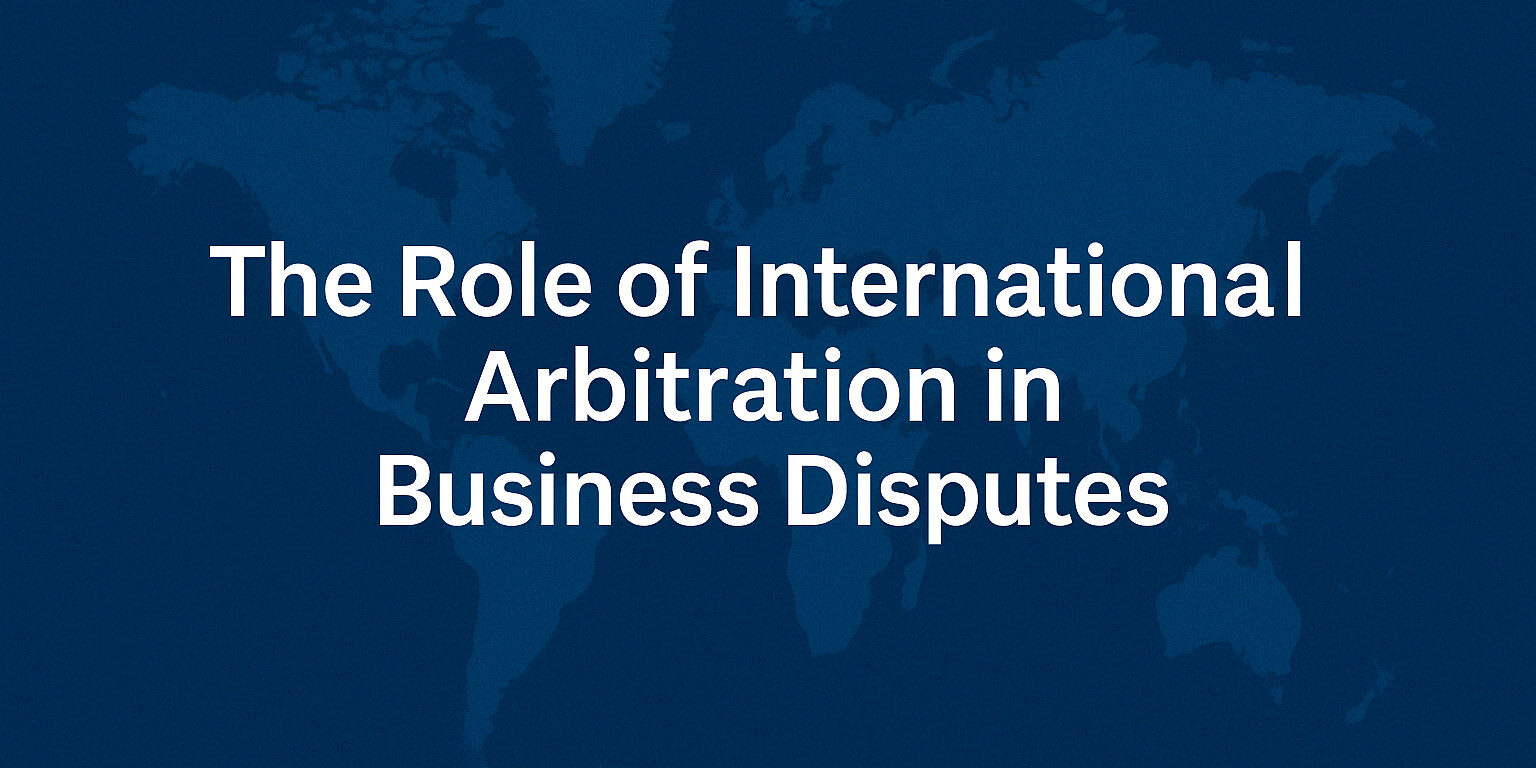When business relationships cross borders, resolving disputes becomes more complicated. Jurisdictional issues, unfamiliar legal systems, and language barriers can quickly turn a contract disagreement into a legal nightmare.
That’s where international arbitration comes in. For many companies engaged in cross-border commerce, arbitration is the preferred method of dispute resolution. It offers neutrality, flexibility, and enforceability that traditional court systems often cannot.
Here’s what every business should know about the role of international arbitration in resolving global disputes.
What Is International Arbitration?
International arbitration is a private dispute resolution process in which parties from different countries agree to have their dispute decided by one or more impartial arbitrators instead of a court. The process is typically governed by:
- The arbitration agreement in the contract
- An established set of procedural rules (e.g., ICC, UNCITRAL, LCIA)
- The law of the “seat” (location) of arbitration
The result is a binding decision (award) that can be enforced in many countries under international treaties.
Why Businesses Choose Arbitration
- Neutral forum – Neither party is forced to litigate in the other’s home court.
- Confidentiality – Unlike court cases, arbitration proceedings and outcomes are usually private.
- Expertise – Parties can select arbitrators with subject-matter knowledge.
- Finality – Arbitration awards are generally not subject to appeal, making resolution quicker.
- Enforceability – Thanks to the New York Convention, arbitration awards are enforceable in over 160 countries.
When Arbitration Makes Sense
International arbitration is especially useful for:
- Complex, high-value contracts
- Joint ventures and licensing agreements
- Disputes where neutrality is critical
- Countries with unpredictable or slow court systems
However, it may not be ideal for:
- Small-value disputes (due to arbitration costs)
- Situations requiring urgent injunctive relief
- Parties unwilling to waive traditional appeal rights
Key Components of a Strong Arbitration Clause
To ensure enforceability and clarity, a well-drafted arbitration clause should include:
- Scope of disputes covered by arbitration
- Number of arbitrators (usually 1 or 3)
- Institution and rules (e.g., ICC, LCIA, SIAC)
- Seat (legal location) of arbitration
- Language of proceedings
Even a single poorly worded sentence can derail the process. It’s essential to get this right up front.
Final Thoughts
International arbitration provides a reliable, flexible way for businesses to resolve cross-border disputes while avoiding foreign court systems. But like any legal tool, its success depends on how well it’s planned and executed.
Need help drafting or enforcing an arbitration agreement? Our attorneys have deep experience in international dispute resolution. Contact us to protect your interests globally.



